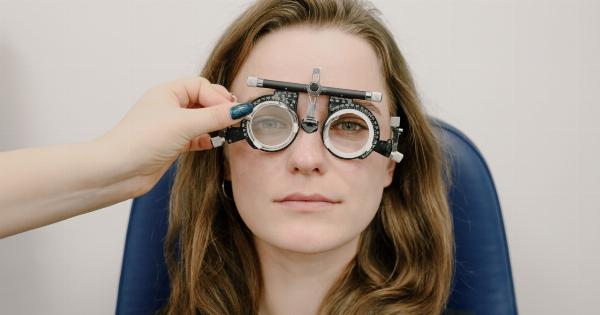Outpatient programs have proven to be an effective form of treatment for addiction, offering numerous benefits for individuals seeking help.
Unlike inpatient programs, outpatient treatment allows patients to receive care while maintaining their daily responsibilities and routines. This flexibility makes outpatient programs a popular choice for those who cannot commit to a residential treatment center due to work, family, or other obligations.
In this article, we will explore the benefits of outpatient programs in treating addiction.
1. Flexibility and Convenience
One of the key advantages of outpatient programs is the flexibility and convenience they provide. Patients can schedule their treatment sessions around their work, school, or family commitments.
This allows them to participate in treatment while still fulfilling their obligations. For individuals who cannot afford to take an extended leave from their responsibilities, outpatient programs offer an accessible option for receiving treatment.
2. Lower Cost
Compared to inpatient programs, outpatient treatment is generally more affordable. Without the need for accommodation, meals, and round-the-clock care, outpatient programs can significantly reduce the overall cost of addiction treatment.
This makes it a viable option for individuals who want quality treatment without incurring substantial financial burdens.
3. Continuity of Care
Outpatient programs provide the benefit of continuity of care by allowing individuals to receive treatment while residing in their homes. This seamless transition from treatment to everyday life enhances the chances of successful recovery.
Continuity of care ensures that individuals have ongoing support, even after completing the program, which is crucial for long-term sobriety.
4. Supportive Environment
Outpatient programs create a supportive environment where patients can connect with peers who share similar challenges.
Group therapy sessions, support groups, and counseling provide opportunities to discuss experiences, share coping strategies, and find encouragement from others on the same journey. This support system plays a vital role in the recovery process by promoting a sense of belonging and reducing feelings of isolation.
5. High Level of Autonomy
Outpatient treatment empowers individuals to take charge of their recovery. Unlike inpatient programs, outpatient programs allow patients to continue living independently, making decisions, and managing their daily lives.
This level of autonomy can boost self-esteem and instill a sense of personal responsibility for one’s well-being, contributing to long-term success in recovery.
6. Tailored Treatment Plans
Outpatient programs offer individualized treatment plans based on the specific needs and circumstances of each patient.
The treatment team assesses the patient’s addiction severity, mental health status, and overall well-being to create a customized plan. This personalized approach ensures that patients receive the most appropriate interventions and therapies to address their unique challenges.
7. Access to Resources
Outpatient programs provide individuals with access to a wide range of resources that can support their recovery.
These resources include educational materials, workshops, vocational training, relapse prevention strategies, and referrals to specialized services like counseling, psychiatric care, or family therapy. Having access to an extensive network of support enables individuals to address various aspects of their addiction and work towards holistic healing.
8. Greater Privacy
For individuals who value their privacy, outpatient programs offer a degree of confidentiality that inpatient programs may not provide.
Since patients can continue living at home, they can choose to disclose their participation in treatment to a select few. This discretion allows individuals to maintain their privacy and control over who knows about their journey towards recovery.
9. Integration of Real-life Situations
Outpatient programs provide the unique advantage of allowing individuals to practice their newly acquired coping skills and strategies in real-life situations.
By facing challenges outside of the treatment setting, patients can gain confidence in their ability to handle triggers, cravings, and stressful circumstances while staying committed to their recovery journey. This practical integration enhances the effectiveness of treatment and prepares individuals for long-term success.
10. Family Involvement
Outpatient programs often emphasize the importance of family involvement in the recovery process. This emphasis recognizes the influence that family dynamics have on an individual’s substance use and the overall support network available.
Including family members in counseling sessions, education programs, and family therapy sessions helps strengthen relationships, improve communication, and promote a healthier and more supportive family environment for long-term recovery.
Conclusion
Outpatient programs offer a range of benefits for individuals seeking addiction treatment.
The flexibility, lower cost, continuity of care, supportive environment, high level of autonomy, tailored treatment plans, access to resources, greater privacy, integration of real-life situations, and family involvement make outpatient programs a compelling choice for many. The combination of these advantages enhances the effectiveness of treatment and promotes lasting recovery.
If you or a loved one are struggling with addiction, consider exploring the option of outpatient treatment programs for a holistic and flexible approach to recovery.



























